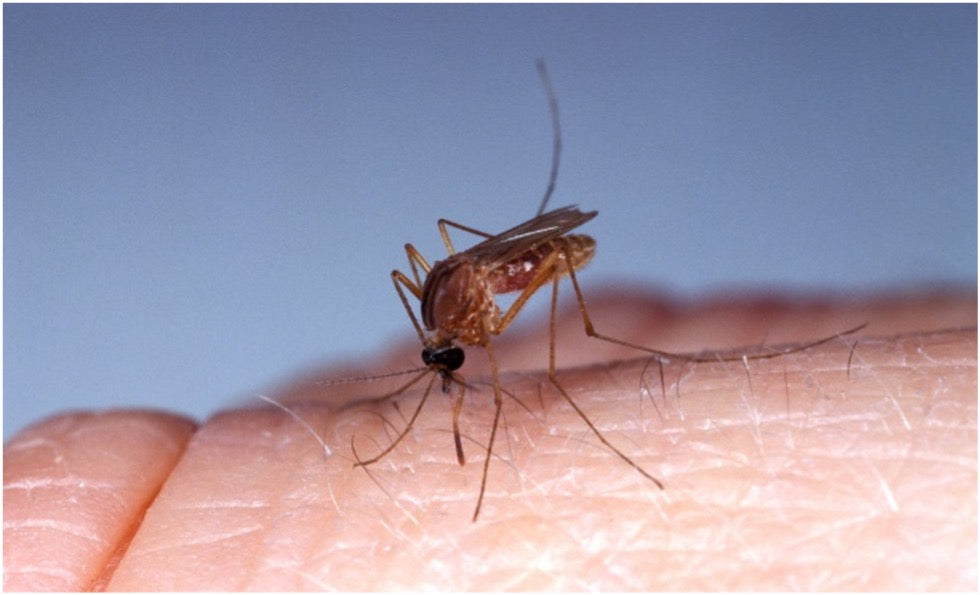Move Over EEE, The Real Killer is West Nile Virus

West Nile Virus (WNV), a mosquito-borne illness, made headlines when Dr. Fauci was recently hospitalized with the virus.
The hype around Eastern Equine Encephalitis (EEE) has been blown out of proportion when compared to the deadliest mosquito-born virus (WNV) carried by the deadliest animal in the world.
The virus is far more prevalent and deadly than EEE. In 2012 an estimated 286 lost their lives to this virus, far surpassing EEE mortality statistics. (EEE has on average 7 CASES per year) (1)
West Nile Virus deaths by year

What you need to know
West Nile Virus is the most common mosquito-borne virus in the U.S. In 2021 there were 221 recorded deaths.
8 out of 10 who are infected do not develop symptoms.
Incubation: 2-14 days, in some cases longer.
Overall fatality is 10%
Symptoms: headaches, fever, muscle pain, weakness, joint pain, sore throat, rash, swollen lymph nodes, nausea, vomiting.
More serious symptoms include high fever (103 degrees) neck stiffness, confusion, seizures, paralysis, coma, and death.
It isn’t contagious- you can’t catch it from another person.
Long-term complications include memory loss, hearing loss, difficulty walking, muscle weakness, depression
There are no vaccines. Symptoms are treated with over-the-counter medications unless severe symptoms develop (as in the case of Dr. Fauci). (2)
Prevention for all mosquito-borne illnesses
The best way to reduce the risk of getting bit:
- Avoid high-risk times when mosquitos are the most active. This is mostly early morning and around sunset.
- Keep areas free of standing water on your property. This includes gutters, buckets, tarps, kid’s toys, and covering swimming pools to prevent mosquitoes from laying their eggs in the water.
- Use insect repellant on your body and clothing.
- Products that contain DEET are highly effective in repelling mosquitoes. In some cases, you may want to avoid using it directly on your skin. Spraying on clothing and covering arms, legs, and wearing a hat sprayed with DEET is one way to avoid direct contact. Pairing this with effective essential oils used topically can help provide the barrier needed to avoid getting bit.
- Eight EOs including cinnamon, marjoram, lemongrass, bay, chamomile, jasmine, peppermint, and thyme have demonstrated the ability to repel mosquitoes for 30 minutes in one test. (3)

Our organic essential oil kit contains the oils you need to make your own mosquito repellant. Always use a carrier oil when applying directly on the skin as these oils are highly concentrated. You can also use these oils in a diffuser to keep mosquitos at bay.
Avoid using near eyes and around animals.
References
- Centers for Disease Control and Prevention. (n.d.). About Eastern Equine Encephalitis. U.S. Department of Health & Human Services. Retrieved September 1, 2024, from https://www.cdc.gov/eastern-equine-encephalitis/about/index.html
- Centers for Disease Control and Prevention. (n.d.). West Nile virus. https://www.cdc.gov/west-nile-virus/index.html
- Wu W, Yang Y, Feng Y, Ren X, Li Y, Li W, Huang J, Kong L, Chen X, Lin Z, Hou X, Zhang L, Chen Y, Sheng Z, Hong W. Study of the Repellent Activity of 60 Essential Oils and Their Main Constituents against Aedes albopictus, and Nano-Formulation Development. Insects. 2022 Nov 22;13(12):1077. doi: 10.3390/insects13121077. PMID: 36554987; PMCID: PMC9782114.
Written By Brooke Lounsbury














